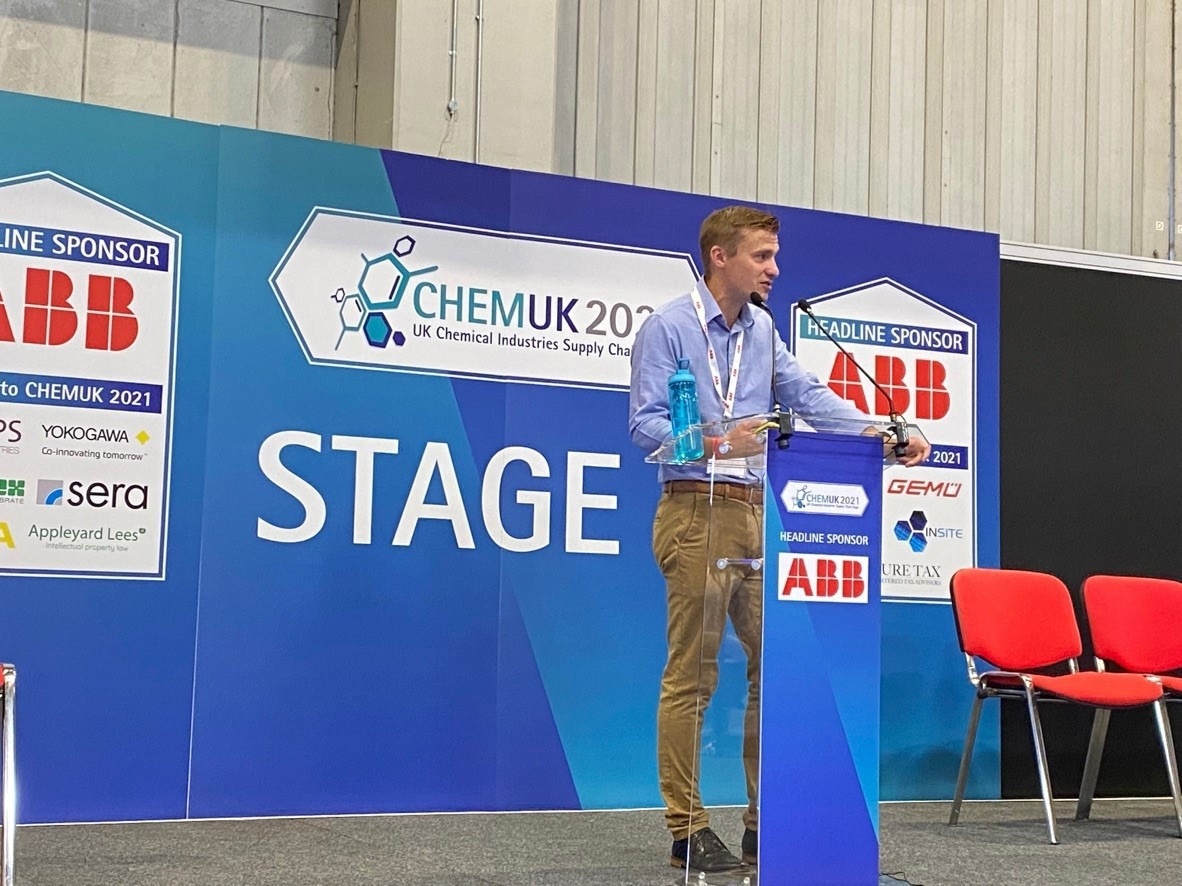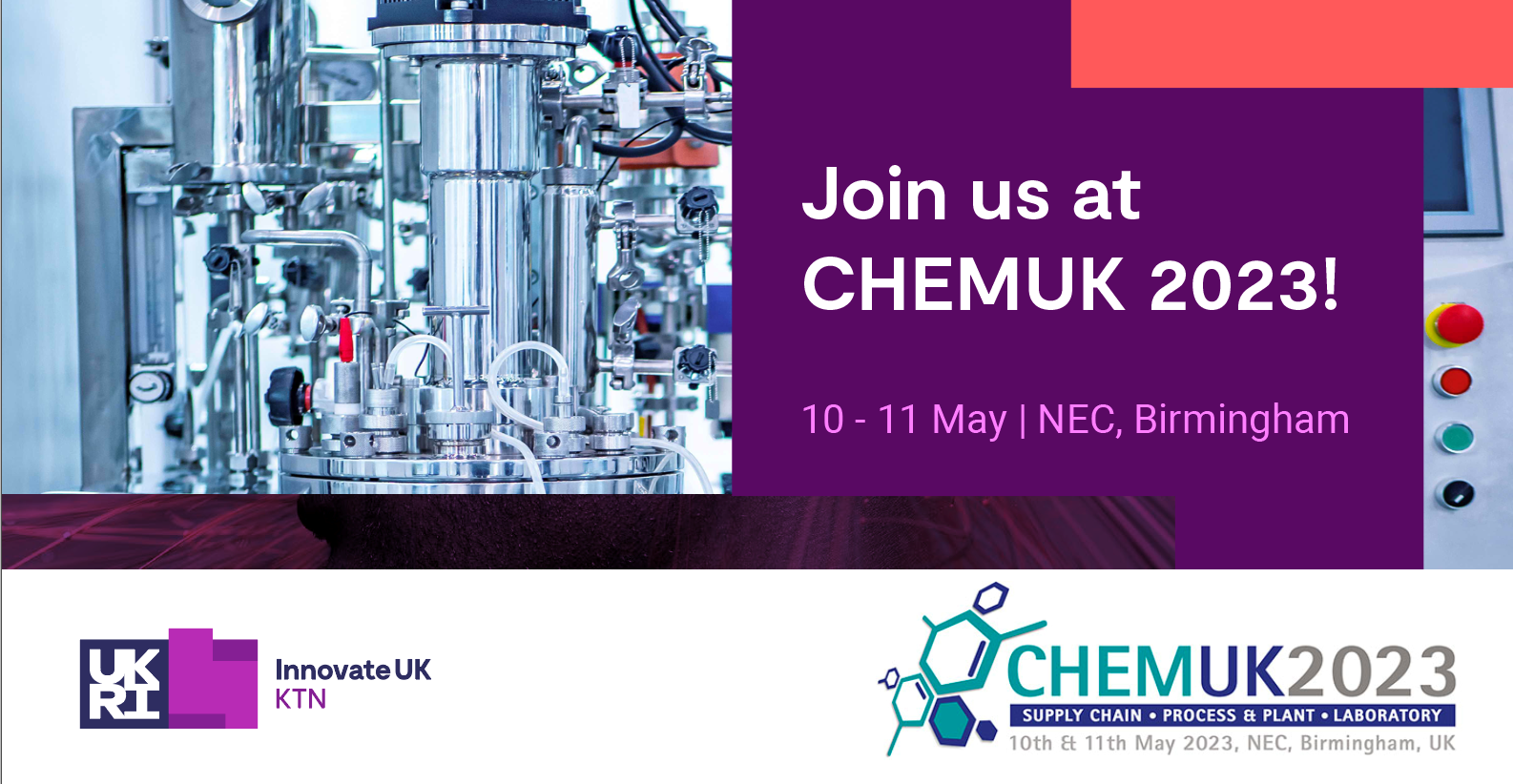AZoM had the opportunity to speak with Dr. Peter Clark from InnovateUK KTN about the work that they do to connect and inspire the industry, as well as their presence at the ChemUK trade show in Birmingham this May.
Could you please introduce yourself and your professional background in chemistry and biotechnology?
I am the Head of Chemistry & Industrial Biotechnology at Innovate UK Knowledge Transfer Network. I am also an Advisor on the Board of green chemistry start-up Green Lizard Technologies and the Reducing Industrial Carbon Emissions (RICE) project. Prior to joining Innovate UK KTN, I spent more than eight years in Australia, gaining a broad range of experience by working across research & innovation, industry consulting, policy development, and managing sustainability programs for the chemicals sector. My enthusiasm for chemistry and innovation was developed during my time as a Masters Student and then Ph.D. Student working in the Clean Technology Group at the University of Nottingham.
How does Innovate UK KTN encourage process/technology innovation in different industrial sectors?
We accelerate innovation by connecting innovators to partners and funding. We do this through the design and delivery of programs which often run alongside the funding competitions run by our partners at Innovate UK.
In my team, we have eight technical & sector specialists who are working with the chemistry & industrial biotech innovator community (established industry, disruptive innovators, research, and scale-up community) to connect them to the funding opportunities that exist today. In parallel, we are working with our innovator community and our partners at Innovate UK and other Government bodies to inform the direction of future public investment in innovation.
What’s really exciting and unique about Innovate UK KTN is that we have experts with knowledge, expertise, and networks spanning all emerging technologies and sectors. This level of deep cross-sector knowledge means that we have an extremely powerful network at our fingertips.
In November 2021, Innovate UK launched the Action Plan for Business Innovation 2021 to 2025. We are working together more closely than ever with our partners at Innovate UK to deliver this ambitious plan.
Innovate UK KTN is launching a two-day ‘Resource Efficiency’ program at this year’s ChemUK trade show in May. What does this program involve?
Broad adoption of resource efficiency is critical for economic growth, protecting our environment, and ensuring the resilience of supply. However, the implementation of resource-efficient solutions is a complex and enormous task. As part of Innovate UK’s focus on Net Zero, they are investing £15 million in the Resource Efficiency for Materials and Manufacturing (REforMM) Programme. This program is designed to put in place the key building blocks to help businesses transform to a resource-efficient future. On top of this, there is a £14 million investment from Innovate UK, BBSRC, and EPSRC in Sustainable Bio-based Materials and Manufacturing and also £15 million from Innovate UK for Circular Critical Materials Supply Chains. You can find out more about these programs in our sessions at CHEMUK or by clicking on the links. These programs all support the recently launched Materials and Manufacturing Vision for 2050.
How important is it to see a transition to a circular economy in the chemical industry?
The chemical sector is the critical enabler of the circular economy. It is technological innovation in chemistry and industrial biotechnology that will help reduce our dependence on virgin fossil carbon as an energy source and feedstock for the production of fuels and chemicals. The Flue-to-Chem project, which we are showcasing at CHEMUK, is a good example of this.

Image Credit: InnovateUK KTN
It is also this sector that will enable us to create more secure local supply chains for critical raw materials (CRMs), either through the development of advanced materials that reduce our reliance on CRMs or through the creation of more efficient and scalable chemical recycling processes for CRMs that allow us to keep these materials in the circular economy. We will talk more about this in our sessions!
Innovate UK KTN works across multiple sustainable manufacturing sectors, including in collaboration with the UK circular plastics network. Could you describe some of the work and opportunities that are created by Innovate UK KTN toward more sustainable practices in the chemical industry?
We played a key role in convening the Flue-to-Chem project. In my view, this is one of the most disruptive and collaborative projects that I have seen in my 7+ years at IUK KTN, so we are pleased to have played a role in helping to make it happen. In parallel, we have engaged with the whole carbon capture and utilization supply chain to develop an Innovation action plan to transform industrial waste gases into chemicals which we will use to inform policy and accelerate innovation in this area.
We also recently released a report looking at the opportunities for biomass as a chemical feedstock which we have been using to inform government policy in this area. We believe there are a lot of opportunities for the chemical sector to accelerate innovation through the adoption of digital technologies so we have been working with experts from our network to develop a Playbook that our community can use to assess their state of development.
How important is knowledge transfer to these efforts?
Innovation is a long, arduous journey full of pitfalls and is extremely difficult to do alone. Knowledge transfer is critical to speeding up the innovation process. We are lucky to have such a well-developed innovation ecosystem to help innovators connect to funding, connect to scale up partners (e.g., through our Catapult network), and other support organizations (e.g., Innovate UK EDGE). If you are reading this and want help navigating it, come and talk to us at our Exhibition stand.
Why do you believe it is important for Innovate UK KTN to engage with in-person trade shows such as ChemUK?
Our primary role is to connect. CHEMUK provides a unique forum to engage with the chemicals sector and its supply chain. Our aim is to raise awareness within the sector of the funding and support that is available to companies to accelerate innovation and, ultimately, to help grow the sector and the UK economy.

What is next for Innovate UK KTN?
I have only covered just a few of the funding programs that are available, but hopefully you can see from this article that we are going to be pretty busy over the next year working with our partners at Innovate UK to help accelerate clean growth in the UK! We look forward to working with the chemical sector to create some fantastic case studies and helping the sector to grow!
Register for ChemUk 2023 Here!
About Dr. Peter Clark
 Peter is Head of Chemistry & Industrial Biotechnology at Innovate UK KTN where one of his key roles is to identify, develop and deliver innovation programs & activities where chemistry and industrial biotechnology can play a key enabling role to accelerate innovation for the benefit of UK plc.
Peter is Head of Chemistry & Industrial Biotechnology at Innovate UK KTN where one of his key roles is to identify, develop and deliver innovation programs & activities where chemistry and industrial biotechnology can play a key enabling role to accelerate innovation for the benefit of UK plc.
Peter has a detailed understanding of the innovation ecosystem, as well as a powerful network of connections. He has a detailed understanding of key challenges and opportunities for innovators in chemistry & industrial biotechnology and works closely with Innovate UK, and other stakeholders from Government and the private sector, to develop new programs & initiatives that will accelerate innovation to meet key global challenges, like Net Zero.
Peter’s key interests (and focus for his team) include supporting the move to a Net Zero and Circular Economy, developing new supply chains for Raw Materials and Feedstocks, also the adoption of digitalization techniques. Peter and the team are actively supporting a number of cross-sector KTN programs related to: industrial decarbonization, batteries, critical raw materials, circular plastics, hydrogen and sustainable aviation fuels.
Peter holds a Ph.D. in Chemistry from the Clean Technology Group at University of Nottingham. Prior to joining KTN, Peter spent more than eight years in Australia gaining a broad range of experience by working across research & innovation, industry consulting, policy development and managing sustainability programs for the chemicals sector.
Disclaimer: The views expressed here are those of the interviewee and do not necessarily represent the views of AZoM.com Limited (T/A) AZoNetwork, the owner and operator of this website. This disclaimer forms part of the Terms and Conditions of use of this website.